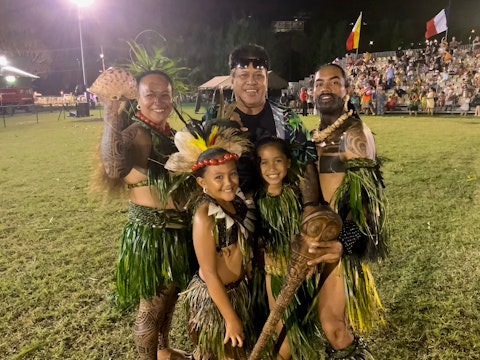Indigenous Science and Conservation - The Name of our Islands
Among the names that make up the Marquesas Islands in which we find Hiva, there is one that causes disagreements and disputes, and that is Fatu Hiva[1], the easternmost island of the archipelago
Among the names that make up the Marquesas Islands in which we find Hiva, there is one that causes disagreements and disputes, and that is Fatu Hiva[1], the easternmost island of the archipelago
Why? Because, the legend of the creation of the Marquesas Islands, compared to the construction of a house[2], whose roof refers to nine rows, each composed of several coconut palms. The number nine is called iva, a term used throughout the Pacific. But it turns out that this figure was noted as hiva by Joseph Banks (Rench, 2003), when he came with James Cook[3] to Tahiti in 1774, as well as by other explorers (Rench, 2000).
Very often, over time, certain sounds disappear, usually for a more convenient use of the language. This is the case here with the aspirated h which disappears. Iva therefore becomes easier to pronounce, but keeps the meaning of the number nine.
Moreover, in this legend, the nine rows of palms cling to the ridge beam called hiva. It is therefore the rows of braided coconut leaves, fatu, which are nine in number, hiva, which have been hung at length, oa, hiva ridge beam, hence the name of the island, Hiva Oa. We can therefore logically consider that hiva is older than iva, and fully justifies its place with Fatu.
In my investigations, I have not found, in any of the languages now spoken in the Pacific, the term hiva indicating the number nine, although, as we have seen above, it was in use. To privilege Iva by excluding Hiva is, in my opinion, a serious mistake. It is still in use in our country, in the Marquesas, through the name Fatu Hiva. Let's not reject it, out of ignorance, but rather let's keep both!
[1] The other two are Nuku Hiva and Hiva Oa.
[2] See on the same site, the creation of the Marquesas Islands. Here, the storyteller is talking about Hatu Iva. Hatu belongs to the language of the North, where he originates. Fatu and Hatu say the same thing: build.
[3] Great English explorer who accurately mapped the Pacific Ocean.





